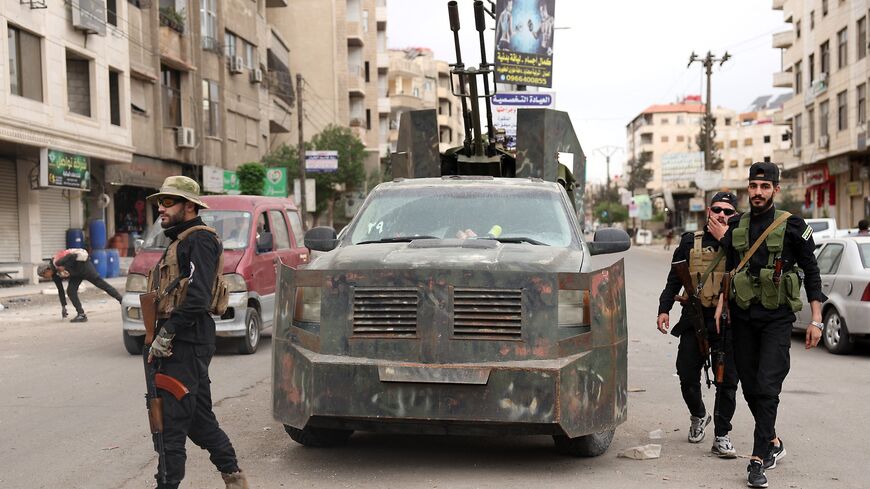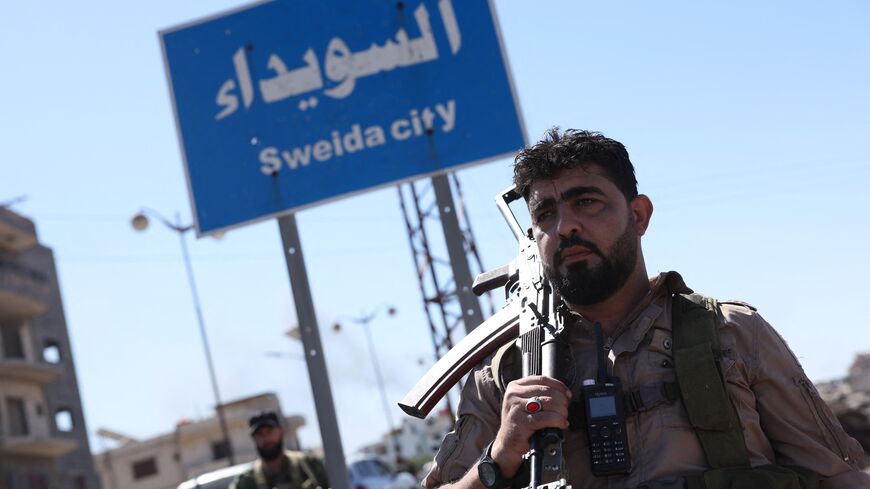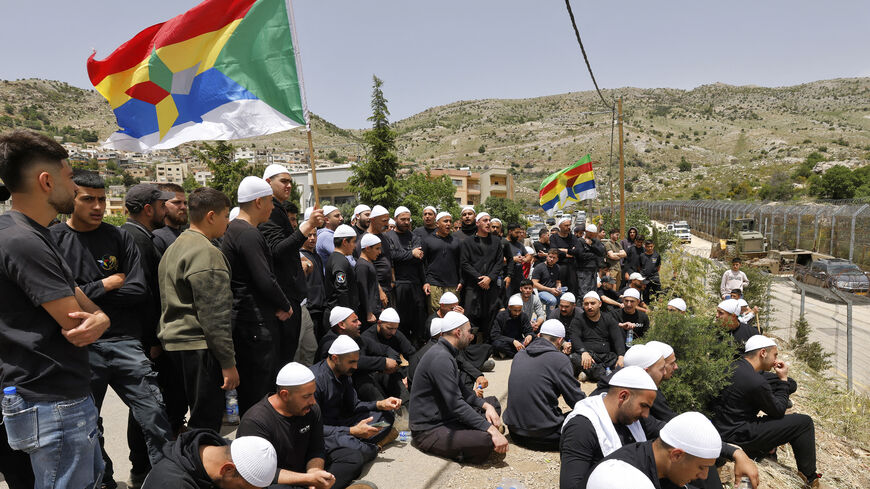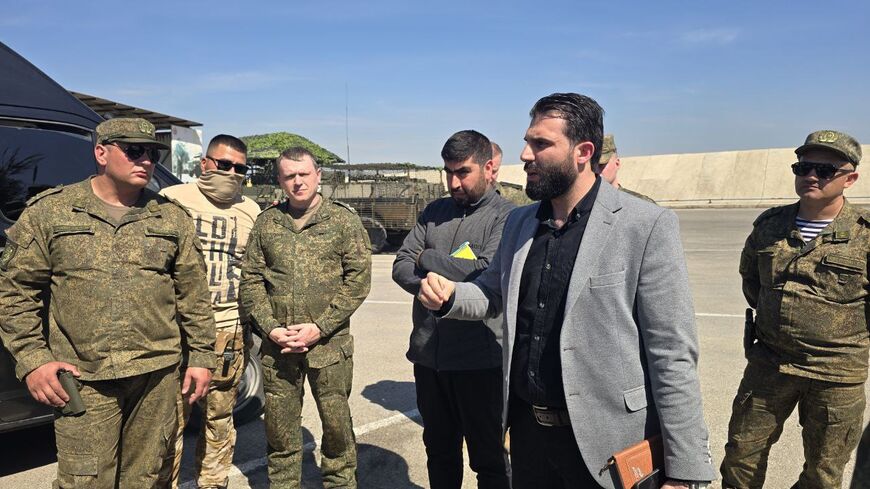Syria Druze leader decries 'genocidal attack' as clashes leave 101 dead
The Syrian government rejected calls for foreign intervention after a Druze leader slammed Damascus over the latest bout of sectarian violence in the country.
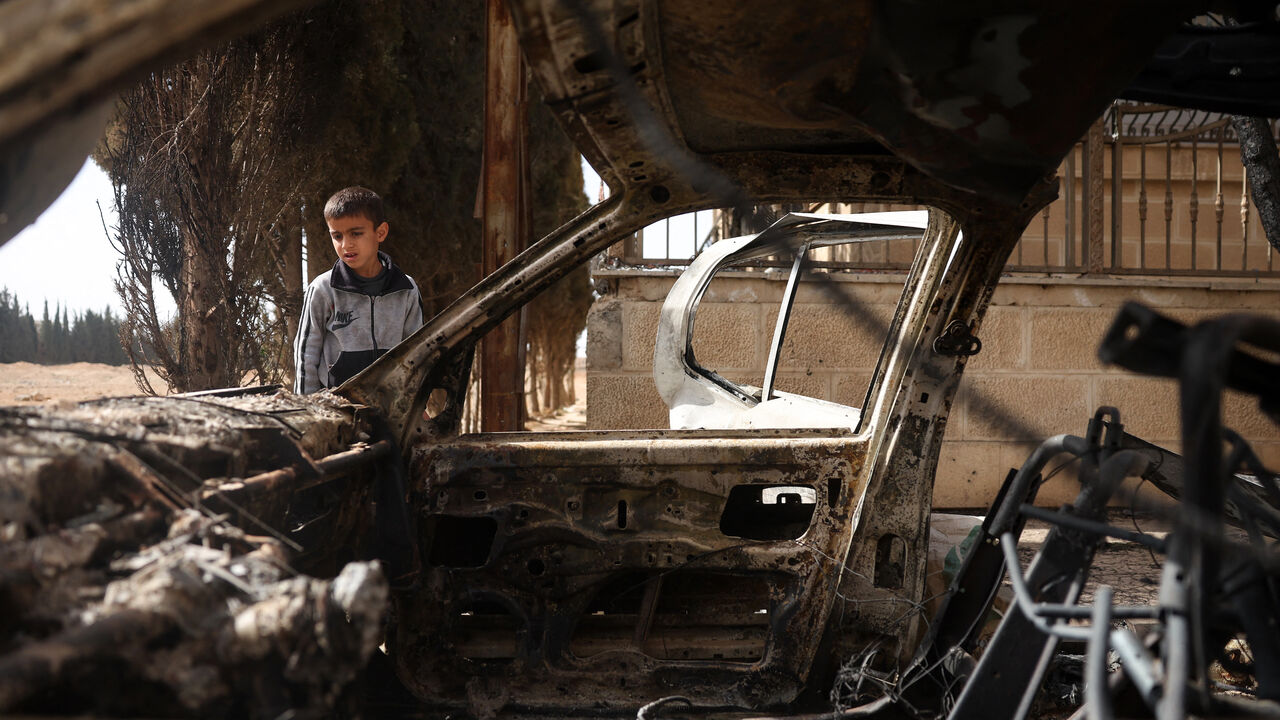
Syrian Druze spiritual leader Sheikh Hikmat al-Hijri accused the government on Thursday of conducting a "genocidal attack" on his community following days of deadly sectarian clashes that left 101 dead.
Hijri was referring to the violence between Druze and Sunni Syrians in southern Syria this week as an "unjustified genocidal attack" in a statement. He called for international help to alleviate the situation, saying, “International forces must intervene immediately to maintain peace.”
The leader slammed the Damascus government for the violence, saying, “We no longer trust an organization that claims to be a government," and "A government does not kill its people through Takfiri gangs to which it belongs.”
Takfiri is an Islamic term that refers to apostates. It is often used to describe radical groups such as the Islamic State.
Hijri's comments followed days of sectarian violence in southern Syria. Clashes broke out in Jaramana on Monday when armed men from nearby Sunni locales descended on the Druze-majority town. The incident was prompted by a purported recording of a Druze man insulting the Prophet Muhammad that circulated in Syria. The fighting spread to Sahnaya, located near Ashrafiyat Sahnaya, and Suwayda province on Wednesday. A truce was reached in Sahnaya and Jaramana on Wednesday.
The UK-based Syrian Observatory for Human Rights said on Thursday that the death toll from the clashes had risen to 101. The breakdown of deaths is as follows, per the war monitor:
- 20 government forces and 14 Druze fighters killed in Ashrafiyat Sahnaya
- 9 Druze were executed and 1 Druze civilian killed by shelling in Sahnaya
- 10 government forces and 7 Druze fighters killed in Jaramana
- 5 Druze fighters killed in clashes near al-Soura al-Kubra
- 35 Druze fighters killed in an ambush by government-affiliated forces on the Suwayda-Damascus road
The Syrian government deployed dozens of its forces to the south on Thursday. Syria’s official news agency SANA reported that security forces deployed to Ashrafiyat Sahnaya, located 11 kilometers (seven miles) south of Damascus, in an effort to help the area “return to normal.”
مراسل سانا: عودة الحياة إلى طبيعتها في أشرفية صحنايا، وسط انتشار قوات الأمن العام في البلدة لضبط الأمن والحفاظ على سلامة الأهالي.#سانا pic.twitter.com/iNZgdyj9n3
— الوكالة العربية السورية للأنباء - سانا (@Sana__gov) May 1, 2025
In the southern Suwayda province, Governor Mustafa al-Bakour met Syrian military leaders to discuss their deployment to the town of al-Soura al-Kubra, according to SANA. The town is 50 kilometers (31 miles) southeast of Damascus.
The Syrian news outlet Enab Baladi reported that entrances to Damascus suburb Jaramana were reopened on Thursday after being closed since Tuesday due to violence.
In a possible response to Hijri, Syrian Foreign Minister Asad al-Shaibani criticized the prospect of foreign intervention in a Thursday post on X.
"Any call for foreign intervention, under any pretext or slogan, only leads to further deterioration and division,” he said, without mentioning Hijri.
There are around 700,000 Druze in Syria. The minority group is also present in Lebanon, Israel and Jordan.
Why it matters: Syria, long plagued by sectarian conflict, has experienced intense violence since the Islamist rebel group Hayat Tahrir al-Sham led an offensive that toppled President Bashar al-Assad in December. In early March, more than 1,600 people, mostly Alawite civilians, were killed in a series of massacres in the coastal provinces of Latakia and Tartous. The violence began after the government reported that militias affiliated with the former president ambushed the new government’s forces in the area.
Syria's interim President Ahmed al-Sharaa, who led HTS during the civil war, has condemned the violence and called for unity as the government seeks to establish control throughout the country. Various armed groups operated in Syria during the war and Damascus is now seeking to integrate them into the new armed forces.
Many Syrian minorities remain worried about life under the new HTS-led government due to the group's past jihadist ideology. HTS was once al-Qaeda's affiliate in Syria. Sharaa himself previously fought with al-Qaeda's Iraqi outfit following the 2003 US invasion of Iraq. Al-Qaeda and the Islamic State were responsible for massacres of Yazidis, Christians and other minorities in Iraq and Syria.
Know more: On Wednesday, Israel said it conducted "a warning operation and struck an extremist group" that was attacking Druze in Syria's Sahnaya. The strike marked the first time Israel has acted militarily on behalf of Syrian Druze. Prime Minister Benjamin Netanyahu pledged in February to protect the community, which is mostly divided between Syria, the Israeli-annexed Golan Heights and Israel.

